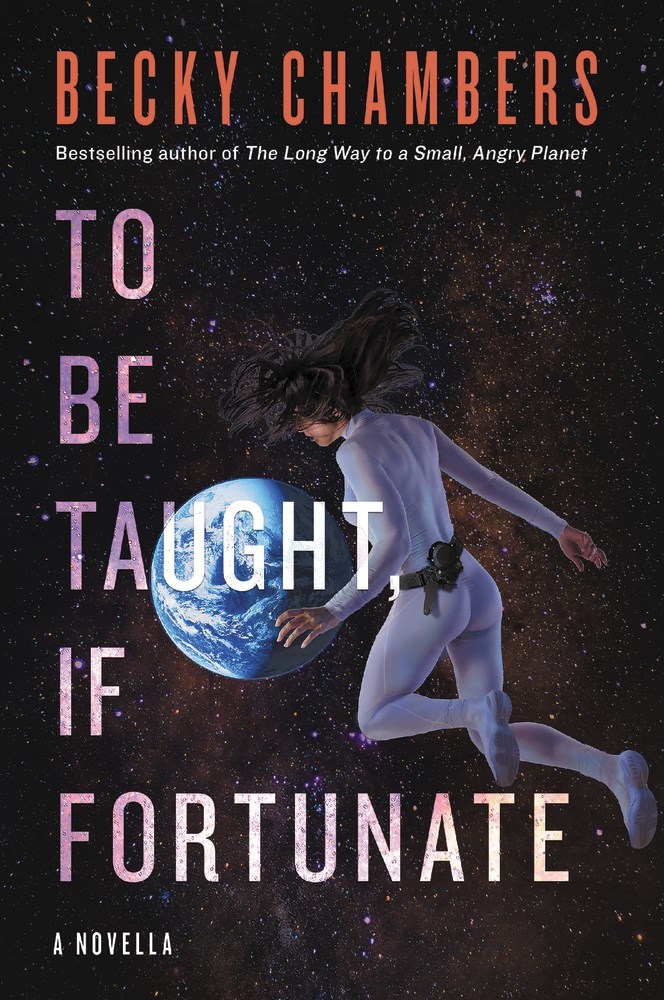What do you think?
Rate this book


153 pages, Paperback
First published August 8, 2019
“We have found nothing you can sell. We have found nothing you can put to practical use. We have found no worlds that could be easily or ethically settled, were that end desired. We have satisfied nothing but curiosity, gained nothing but knowledge.”You have to possess a specific mindset to like this novella. You need to be that person who, in the middle of an adventure story featuring a group of explorers would pause and think — wouldn’t it be nice that if instead of battles/ chases/ intrigue/ tension/ plot we just got a few hours of watching the explorers/ scientists/ astronauts just go about and do their day-to-day work, engage in whatever activities their mission was supposed to be about instead of being distracted by an adventure?¹ You need to be that person who can read a textbook before the course begins just because it’s fun learning new things². Well, I am that person, ergo I loved this book.
¹ I remember reading (and watching) The Martian and feeling vaguely annoyed that we did not get just a few extra minutes/chapters for seeing what the astronauts would be like just doing their normally scheduled mission instead of getting out of there and leaving Mark Watney to grow potatoes in all the loneliness.
² Every geography and biology textbook in my school life, ever. Iwasam a proud nerd.
“I’m an observer, not a conqueror. I have no interest in changing other worlds to suit me. I choose the lighter touch: changing myself to suit them.”
“Because sometimes we go, and we try, and we suffer, and despite it all, we learn nothing. Sometimes we are left with more questions than when we started. Sometimes we do harm, despite our best efforts. We are human. We are fragile.”
“What we want you to ask yourselves is this: what is space, to you? Is it a playground? A quarry? A flagpole? A classroom? A temple? Who do you believe should go, and for what purpose? Or should we go at all? Is the realm above the clouds immaterial to you, so long as satellites send messages and rocks don’t fall? Is human spaceflight a fool’s errand, a rich man’s fantasy, an unacceptable waste of life and metal? Are our methods grotesque to you, our ethics untenable? Are our hopes outdated? When I tell you of our life out here, do you cheer for us, or do you scoff?”
“Where we go from there is up to you.”
‘What we want you to ask yourselves is this: what is space, to you? Is it a playground? A quarry? A flagpole? A classroom? A temple? Who do you believe should go, and for what purpose? Or should we go at all? Is the realm above the clouds immaterial to you, so long as satellites send messages and rocks don’t fall? Is human spaceflight a fool’s errand, a rich man’s fantasy, an unacceptable waste of life and metal? Are our methods grotesque to you, our ethics untenable? Are our hopes outdated? When I tell you of our life out here, do you cheer for us, or do you scoff?’
‘an odd mix of unpredictable changes that follow tragically predictable patterns. War, elections, lines drawn in the sand. The perpetual ebb and flow of some countries reaching out while others walled themselves in. A constant parade of societal drama, powerful within its own sphere, yet impotent when pitted against the colossal rhythms of the planet itself.’
“Don't believe the lie of individual trees, each a monument to its own self-made success. A forest is an interdependent community. Resources are shared, and life in isolation is a death sentence.”
“It is difficult to give thought to the stars when the ground is swallowing you up.”
“The amount a person can spare is relative; the value of generosity is not.”



“If I ask what I'm asking only of people who agree with me at the outset, with whom I already share a dream and a language, then there's no point in asking at all.”







2020 Hugo Award Finalists
